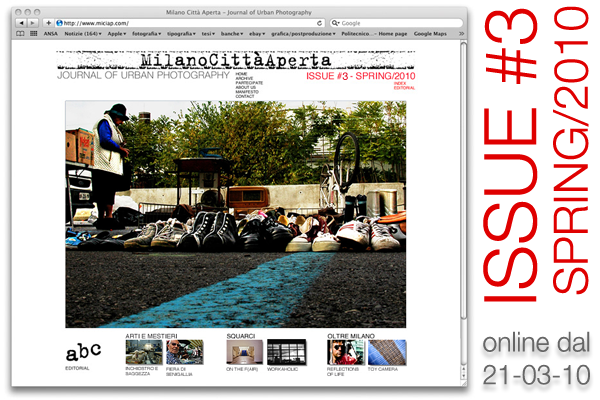Name: Mohamed. Nazionality: Italian
Neonatal unit at 10am: a group of Ecuadorian, Peruvian and Morrocan women wait with their children to start a "baby group" in which new mothers discuss the growth and development of their children.
Consultation unit for foreign women - "Ospedale San Paolo": Chinese and Phillipine mothers sit waiting to visit the pediatrician. A mediator comes out from her office and tells them to be patient as the list of patients to be seen is long and they need to find free spaces to fit them all in.
Centre for foreign women "Ospedale San Carlo": Sixteen year old, Romanian, pregnant Isabela (in her third month of pregnancy) with her smiling mother-in-law. The mother-in-law tells me that today Isabela is scared because she's been having stomach pains and they would prefer to have an examination to see if everything is okay with her unborn baby.
The photographs on these pages explain the reality of pregnancy amongst female immigrants in Milan. They are the product of months of work in three centres in Milan: the neonatal unit of "Mangiagalli" and the consultation units for foreign women at the "Ospedale San Carlo" and "San Paolo" in Milan.
Here, female immigrants receive assistance during and after their pregnancies with the help of qualified practioners including: gynecologists, pediatricians, obstetricians, social workers, psychologists and mediators from: Morrocco, Algeria, China, South America, the Phillipines, Albania and Romania.
According to the ISMU (Iniziative e Studi sulla Multietnicità), the number of foreign women, with respect to pregnant women in Milan, amounts to actually over a quarter of the total. As of January the 1st 2010, the national census detailed that there were 2,950 registered foreign citizens under the age of 1 (1,513 males and 1,437 females) with a total of 75,983 throughout the whole of Italy.
We can therefore understand the importance of valuing these diverse cultures as a blessing; afterall, foreign children that are being born in Italy today will become the adults of tomorrow.


